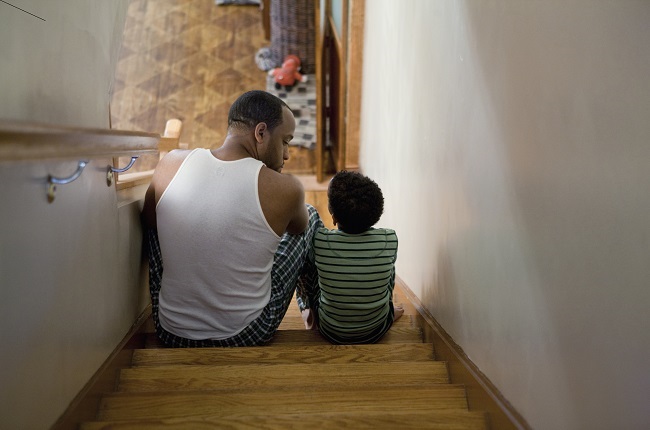
The relationship between free will and consequence is like magic dust for parents who want to reduce their parenting frustrations and increase their child's independence. There's a back story to how I discovered this and how it helped me become a significantly better parent.
My two boys, 3 and 5 years old at the time, were in the bath and going wild, having the time of their lives. Water was everywhere. Instead of seeing their smiling faces, I could see more work for me to do. I lost my cool and screamed at them.
Two young boys having fun in the bath got yelled at by a red-faced dad who felt overwhelmed and lost control. When their happy faces dropped, and the crying began, it broke my heart.
Read: Shouting at kids is not effective discipline. Here's what to do instead
The three of us agreed they could splash and have fun, as long as they cleaned up afterwards. I watched two naked rascals pushing their towels around the bathroom floor the following night, cleaning up their splashed water. They were still giggling, and I was chuffed. That's how the rule was born.
Free will, but not free from consequence. Instead of spending my life telling my kids not to do things or screaming at them when they do, I'm now the explainer and enforcer of consequences, and they get to choose.
Don't want to eat dinner? No worries, the next meal is breakfast.
Want to draw all over yourself? No worries, you aren't getting out of the bath until it's all off.
They quickly learn which consequences they're willing to deal with and which to avoid.
The critical difference between a punishment and a consequence is the timing of when it's explained. If it's explained before the event, it's a consequence. If it's explained after the event, it's a punishment.
Children become comfortable dealing with consequences they have chosen but rebel against a perceived punishment. The better we get at explaining the consequences upfront, the less reactive, frustrated, and angry we'll be.
Also read: Using scare tactics makes children feel less safe and sets a bad example. Do this instead
Instead of punishing behaviour after the fact, we'll teach our children to be responsible for their decisions. Everyone would know I'm lying if I said I hadn't screamed at my kids since "the bath incident of 2017", but it's rare.
I wouldn't punish my kids if I forgot to explain the consequence, denying them the choice. I'll help them deal with the result, so we tackle it as a team. They can learn what will be waiting for them the next time.
The two consequences I am still wholly responsible for are injury and financial. If the consequence is either physical injury to the child or financial injury to your wallet, the parent decides (it'll be a NO!)
There are many things they want to choose that I say no to because of physical or financial risk, but for everything else, they have free will but aren't free from the consequence.
Republished on Parent24 with permission from the BrightRock Change Exchange programme.
See the original here.
Chatback:
Share your stories and questions with us via email at chatback@parent24.com. Anonymous contributions are welcome.
Don't miss a story!
For a weekly wrap of our latest parenting news and advice sign up to our free Friday Parent24 newsletter.




 Publications
Publications
 Partners
Partners











